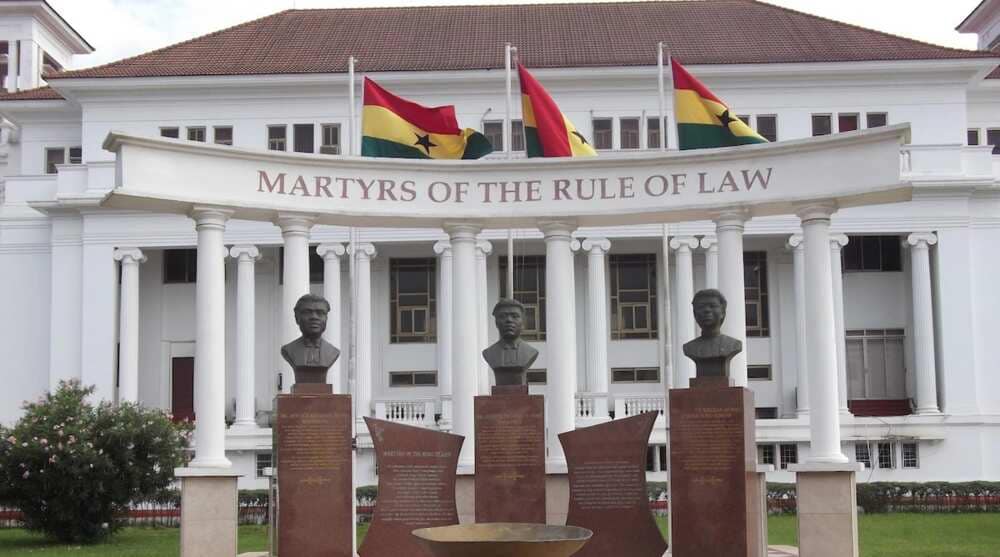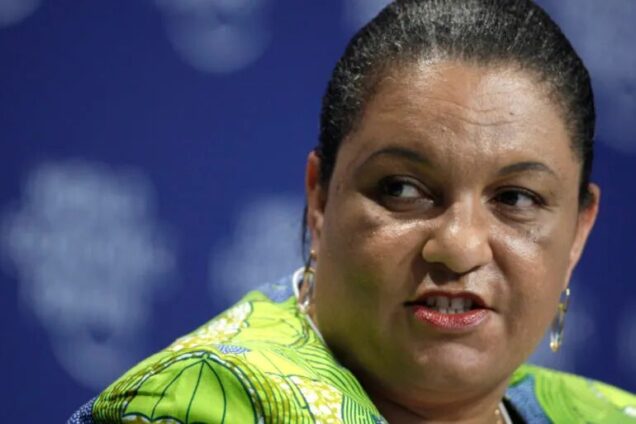Former Minister of Foreign Affairs and Awutu-Senya West MP, Hannah Serwaa Tetteh, has raised thought-provoking questions regarding the Supreme Court’s decision-making process.
Her remarks come in the wake of the Court’s recent ruling that overturned Speaker of Parliament Alban Bagbin’s decision to oust four Members of Parliament.
Taking to her Facebook page, Tetteh questioned whether the justices of the Supreme Court consider public opinion and the broader social implications of their rulings, particularly in politically charged cases.
The United Nations Secretary-General’s Special Envoy for the Horn of Africa, emphasised the significance of the judiciary’s role in maintaining stability in Ghana’s democratic system, especially as elections draw closer.
“When the Justices of the Supreme Court take their decisions or make orders in whatever circumstances, not just in the context of the recent ex-parte decision against the Speaker’s ruling, do they listen to the public commentary and reflect on their decision, its implications and how it has been received not only by the parties to the particular suit or in a case with political undertones?” Hannah Tetteh asked.
In her post, she acknowledged the expectation for the judiciary to interpret the law impartially and ensure its fair application.

However, she stressed that these decisions are made within the context of a society governed by the same laws, which encompasses diverse stakeholders.
“We live in hyper-partisan times, and the closer we get to elections, the more tense the political environment becomes, and consequently, the times when peace and security within the state is at its most fragile,” she warned.
Read also: Supreme Court stays Speaker’s ruling ousting 4 MPs from Parliament
Hannah Tetteh’s remarks pointed to the importance of the judiciary not only surviving in such an environment but thriving as an essential pillar of Ghana’s democracy.
She highlighted the critical role a strong and principled judiciary plays in fostering a competitive yet peaceful democratic process.
“A strong, principled judiciary is essential to a competitive but peaceful democracy. They have an important role to play in ensuring this democracy not only survives but thrives,” she concluded.
Hannah Tetteh’s comments have sparked a broader discussion on the role of the judiciary in navigating Ghana’s tense political landscape, particularly as the nation approaches another election cycle.
Latest Stories
-
George Twum-Barimah-Adu pledges inclusive cabinet with Minority and Majority leaders
26 mins -
Labourer jailed 5 years for inflicting cutlass wounds on businessman
27 mins -
Parliament urged to fast-track passage of Road Traffic Amendment Bill
27 mins -
Mr Daniel Kofi Asante aka Electrician
28 mins -
Minerals Commission, Solidaridad unveils forum to tackle child labour in mining sector
33 mins -
Election 2024: Engagement with security services productive – NDC
34 mins -
Retain NPP for the good of Ghana – Rebecca Akufo-Addo
35 mins -
‘Let’s work together to improve sanitation, promote health outcome’ – Sector Minister urges
36 mins -
Ellembelle MP cuts sod for six-unit classroom block at Nkroful Agric SHS
39 mins -
‘I’ll beat the hell out of you if you misbehave on December 7’ – Achiase Commanding Officer
41 mins -
AFPNC leads the charge on World Prematurity Day 2024
47 mins -
Court remands unemployed man over theft of ECG property
53 mins -
Election security rests solely with the police – Central Regional Police Command
55 mins -
NCCE engages political youth activists at Kumbungu on tolerance
56 mins -
‘In Mahama’s era students lacked chalk, but are now receiving tablets’ – Bawumia
1 hour

